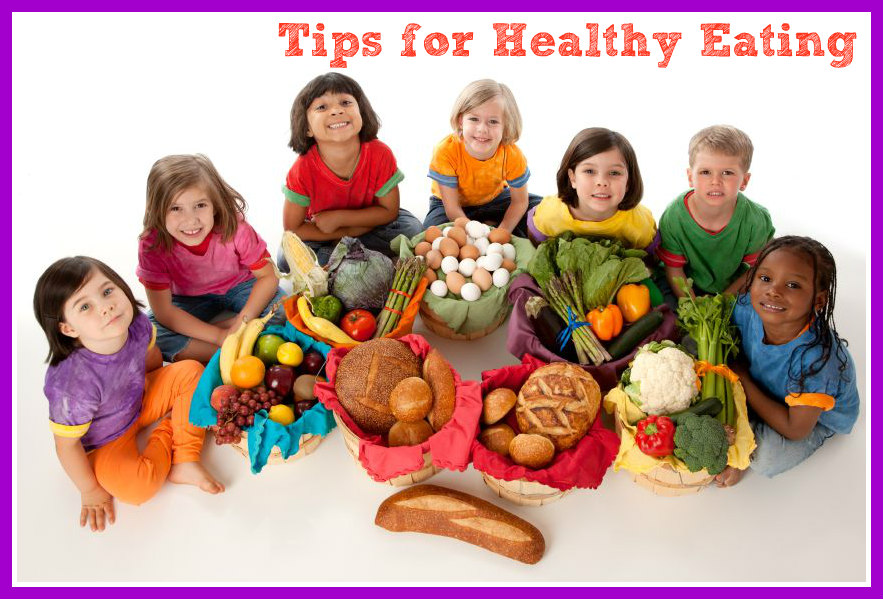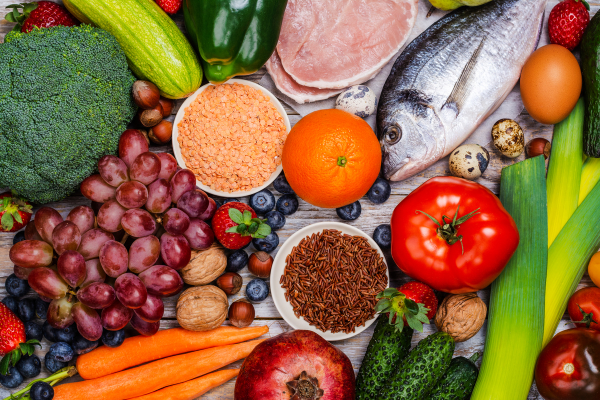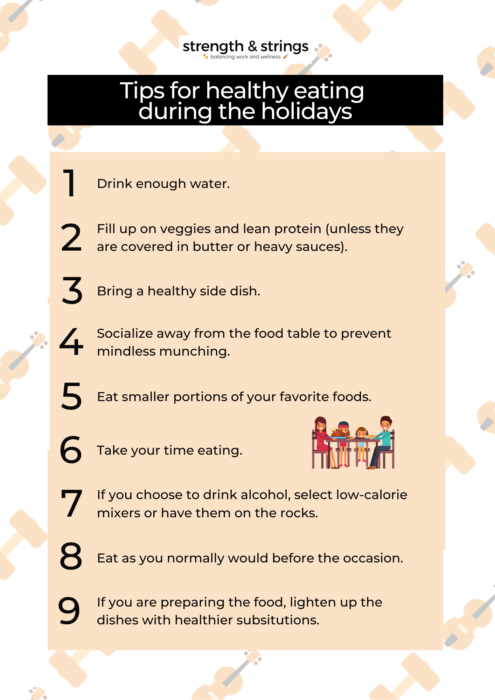
Here are five healthy tips for adults. To stay healthy, you need to reduce alcohol consumption, eat less processed meals, exercise more, cut down on stress, and eat less alcohol. To help you in your quest for a healthier lifestyle, we have listed some easy ways for you to live a healthier life. These tips won't work if you don’t. You will have a lower health budget, and a weaker immune.
Reduce alcohol intake
There are many good reasons to reduce alcohol intake. The most important one, however, is that alcohol increases your chance of getting cancer. The risk of getting cancer is increased by alcohol. Alcohol can also lead to injury and accidents. Apart from being a health risk for others, alcohol can also cause embarrassment. While alcohol can be safe when consumed in small amounts it should be avoided. Here are some healthy tips for adults to decrease alcohol intake.
First, avoid drinking after midnight. Drinking too late at night can lead to more drinking. If this is the case, it may be best to try to find a non-alcohol activity instead. Drinking too early at night can cause longer drinking sessions. When you have more time, it is more likely that you will enjoy your drink later in the day.
Reduce the consumption of processed food
Eating less processed foods can have a positive impact on your health and overall well-being. While it might seem daunting to completely eliminate processed foods, you can make small changes. If you love processed food and drink soda, swap it out for fruit-infused water instead. You can also opt to eat whole fruits instead of the packaged versions. You can make small changes that will have a huge impact on your health and overall nutrition.

You can choose to buy fresh fruits over the processed ones. Whole fruits are much healthier than those with added sugar or processed. This will allow you to eat more and prevent snacking. Vegetables and fresh fruits are excellent sources of fiber. You can also eat less processed meats or plant-based versions if you do have to eat meat. Your body should also be active every day. Make it a priority.
Exercise with your family
No matter where you live, physical activity can be incorporated into your daily routine with your children. Find activities that work for you and your children. Walking, running, and playing games are some of the many family activities. If you're looking for family exercise tips, consider watching YouTube videos of different activities. You can combine family outings with physical activity, depending on your family's age.
Start small. You don't have to spend a lot of time creating elaborate plans. Just look for opportunities that allow you to spend more time with your loved ones. Consider parking further from your destination and taking the stairs rather than the elevator to get there. Then, walk to the corner store. You can be creative! Winter is a great time to get outside and spend quality time together. Play a game or go to the park together.
Reduce stress
High levels of stress can negatively impact your health. Talk to your doctor about ways you can reduce stress in your daily life. Your doctor may recommend medication or therapy for a temporary fix. If you feel stressed out, it is worth taking the time to identify the cause and allow yourself extra time to manage them. It's worth taking a little more time to deal with stress. Here are some tips to help you reduce stress and make sure you get the most out your time.

Avoid stressful situations. Although drugs and alcohol may temporarily relieve symptoms, they don't solve the root problem. Long-term use of such drugs can have negative effects on your health. Be safe. Avoid traffic jams, and don't listen to the evening news. Walking or biking is a better option than driving to avoid unnecessary stress. Online shopping is a great option if you find shopping stressful. Avoiding stressful situations can help you avoid being injured.
FAQ
What should you eat?
Eat lots of fruits and vegetables. These vegetables and fruits are rich in vitamins and minerals that will keep your immune system strong. Additionally, vegetables and fruits are high fiber. This helps with digestion and keeps them full. You should eat at least five servings per day of fruit or veg.
You should also drink lots of water. Water flushes out toxins and helps you feel full between meals. Drink about eight glasses each day.
Eat whole grains instead of refined ones. Whole grains have all their nutrients intact, including B vitamins, iron, zinc, magnesium, calcium, and protein. Some nutrients have been removed from refined grains.
Avoid sugary drinks. Sugary drinks can be a source of empty calories, which can lead to obesity. Choose water, milk or unsweetened tea instead.
Avoid fast food. Fast food is low in nutritional value. Fast food may be delicious, but it will not give you the energy that you need to perform your tasks properly. Avoid soups, sandwiches and other unhealthy options.
Limit alcohol intake. Avoid alcohol as it can cause empty calories and poor nutrition. Limit your intake to two alcoholic drinks per week.
Red meat consumption should be reduced. Red meats have high levels of cholesterol and saturated fat. Opt for lean cuts of beef, pork, lamb, chicken, fish, and turkey instead.
How does an antibiotic work?
Antibiotics can be used to kill bacteria. To treat bacterial infections, antibiotics are used. There are many options for antibiotics. Some are given orally, while some are injected. Other antibiotics are applied topically.
Antibiotics are often prescribed to people who have been exposed to certain germs. One example is if someone has had chickenpox and wants to prevent shingles. For those with strep-thorphritis, an injection of penicillin could be administered to prevent them from getting pneumonia.
When antibiotics are given to children, they should be given by a doctor. Children are more susceptible to side effects from antibiotics than adults.
Diarrhea being the most common side effect of antibiotics. Other possible side effects include stomach cramps, nausea, vomiting, allergic reactions, headaches, dizziness, and rashes. These side effects are usually gone once the treatment is complete.
What is the difference in calorie and kilocalories?
Calories measure the energy content of food. Calories is the unit of measurement. One calorie contains the energy needed to raise the temperature of one gram of water by one degree Celsius.
Kilocalories can also be used to refer to calories. Kilocalories are measured in thousandths of a calorie. 1000 calories are equal to one kilocalorie.
How much should I weight for my height and age? BMI chart & calculator
A body mass index calculator (BMI) is the best way to find out how much weight you should lose. Healthy BMI ranges between 18.5 to 24.9. If you want to lose weight, then you should aim to drop about 10 pounds per month. Simply enter your height, weight and desired BMI into the BMI calculator to calculate it.
This BMI chart shows you if it is possible to identify if you are either overweight or obese.
How can I control my blood pressure?
The first thing you need to do is find out what causes high blood pressure. Then you need to take steps to reduce this cause. These could include taking medication, eating less salt and losing weight.
You also need to make sure you are getting enough exercise. Walking is a great alternative if you don't have the time or energy to exercise regularly.
If you're not happy with how much exercise you're doing, then you should consider joining a gym. You'll probably want to join a gym where there are other people who share your goals. It's easier to stick to an exercise routine when you know someone else is going to see you at the gym.
Statistics
- In both adults and children, the intake of free sugars should be reduced to less than 10% of total energy intake. (who.int)
- According to the Physical Activity Guidelines for Americans, we should strive for at least 150 minutes of moderate intensity activity each week (54Trusted Source Smoking, harmful use of drugs, and alcohol abuse can all seriously negatively affect your health. (healthline.com)
- WHO recommends reducing saturated fats to less than 10% of total energy intake; reducing trans-fats to less than 1% of total energy intake; and replacing both saturated fats and trans-fats to unsaturated fats. (who.int)
- Extra virgin olive oil may benefit heart health, as people who consume it have a lower risk for dying from heart attacks and strokes according to some evidence (57Trusted Source (healthline.com)
External Links
How To
10 tips for a healthy lifestyle
How to lead a healthy lifestyle
We live in a fast-paced world that makes it difficult to get enough sleep, consume too much alcohol, smoke cigarettes, and eat too much. We don't properly care for our bodies.
When you work full-time, it is difficult to maintain a healthy diet and exercise program. It's even harder when you are stressed because your mind tells you that you cannot handle the situation anymore. So we feel guilty and give up.
If your body feels ill, it most likely is. You should see a doctor and ask him/her what he/she thinks about your current condition. If there is nothing abnormal, then it might just be stress from your job.
Some people think they are lucky because their jobs enable them to regularly go to the gym or have good friends who encourage them to stay fit. These people are truly lucky. These people don't have any difficulties. They had everything under control. I wish everyone could become like them. Many of us aren't able to find the right balance between our personal and professional lives. Many people end up with bad habits which eventually lead to diseases such as heart disease, diabetes, cancer and many others.
Here are some tips to help improve your lifestyle.
-
Get enough sleep, minimum 7 hours, maximum 8 hours. This includes proper sleeping positions and avoiding caffeine during the last hour before going to bed. Caffeine blocks the production of melatonin hormones and makes it harder to fall asleep. Your bedroom should be darkened and cleaned. Consider using blackout curtains, especially if working late at night.
-
Get healthy - Start your day with a good breakfast. Avoid sugary foods, fried foods, processed foods, and white breads. Lunch should include fruits, vegetables, and whole grains. A good snack option for afternoon is to include protein-rich snacks like nuts, seeds, beans and dairy products. Avoid snacking on unhealthy foods like chips, candy, cookies, cakes, and sodas.
-
Drink lots of water. We don't have enough. Water can help us burn more calories, keep our skin supple and young, flush out toxins and improve our digestion. Aim to drink six glasses of fluids daily to lose weight more quickly. The best way to measure your hydration level is by checking the color of your urine. Yellow means dehydrated; orange means slightly dehydrated; pink means normal; red means overhydrated; and clear means highly-overhydrated.
-
Exercise - Regular exercise has been shown to reduce depression and increase energy levels. Walking is an easy workout that can also improve your mood. Walking is easy, but it takes effort and concentration. Your brain must be able to concentrate on walking, while taking deep breaths and slowing down. A 30 minute walk at a moderate pace for about 100 calories can burn between 100-150 calories. Start slow, and then increase the pace. To prevent injuries, be sure to stretch after exercising.
-
Positive thinking is vital for mental health. If we are positive, we create a happier environment in our minds. Negative thinking can cause anxiety and drain your energy. To stay motivated, try to think about the things that you want to accomplish. Reduce the number of tasks you have to do in order to feel less overwhelmed. Do not be discouraged if you fail, just get up and try again.
-
You must learn to say No - Too often we get so busy we forget how much time is wasted on things that are not important. It is important you can say no when it is necessary. It is not rude to say 'no'. You are simply saying "no" to something. There are always other options to finish the job later. Set boundaries. Ask for help. Delegate the work to someone else.
-
Take care your body. Keep track of what you eat. Eat healthier foods to boost metabolism and shed extra weight. Avoid eating anything heavy or oily as they can raise cholesterol levels. It is a good idea to eat three meals and two snacks per day. The recommended daily intake should be between 2000 and 2500 calories.
-
Meditation is an excellent stress reliever. Relax your mind by sitting still with your eyes closed. This will help you make better decisions. Practicing meditation regularly will make you calmer and happier.
-
Don't skip breakfast. Breakfast should be the most important meal. Skipping breakfast could lead to eating more lunchtime. It's never too late for a healthy breakfast, as long as it is eaten within an hour of your waking hours. Breakfast boosts energy and helps to manage hunger.
-
Clean eating is key to a happy mood. Avoid junk food and food that contains artificial ingredients or preservatives. These foods make your body feel acidic, and can trigger cravings. Vegetables and fruits are high in vitamins and minerals, which can lead to better overall health.